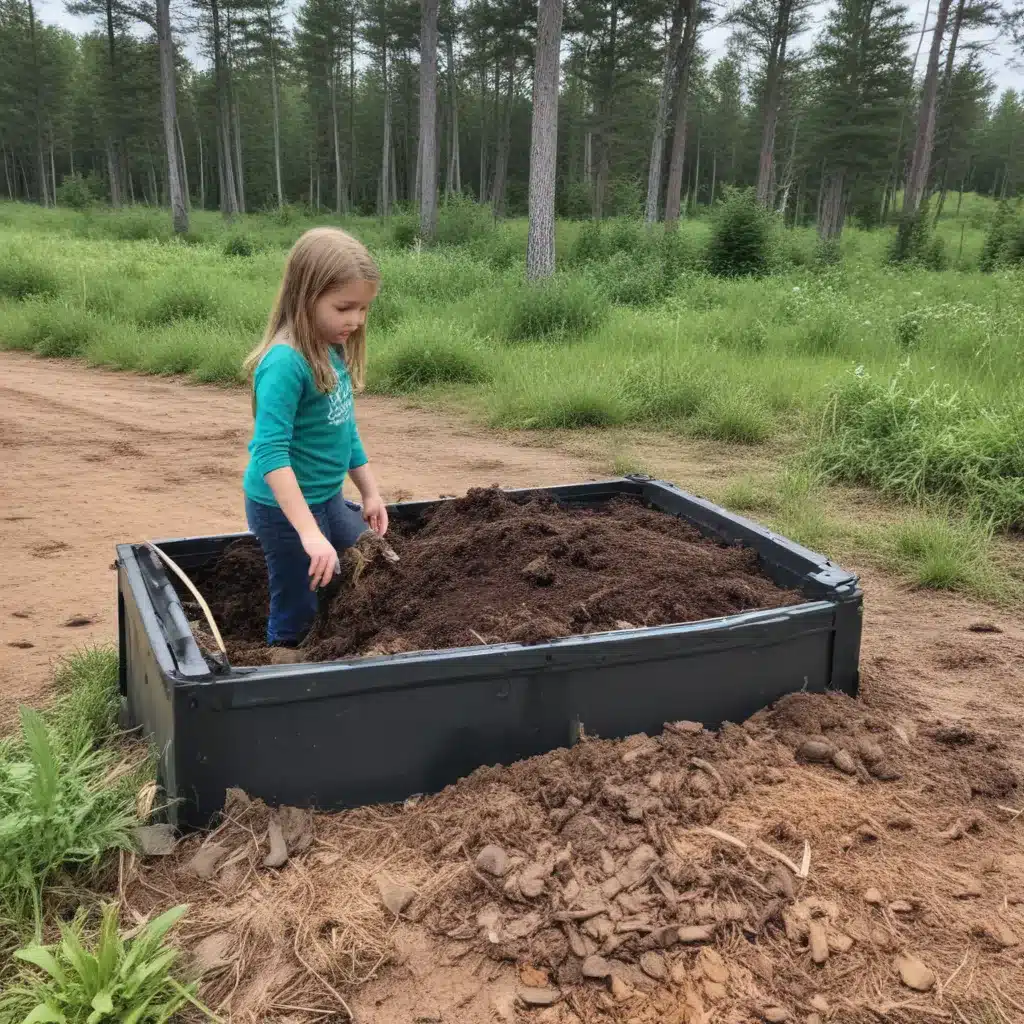
Discovering the Wonders of Composting at Crooked Pines Farm
As a farm educator at Crooked Pines Farm, I’m always in awe of the incredible transformations that take place right here on our land. One of the most remarkable processes we get to witness is composting – the magical way in which our organic waste is converted into nutrient-rich soil amendments that nourish our gardens and fields.
The Benefits of Composting
Composting is truly a win-win for our farm. Not only does it allow us to significantly reduce our waste output, but the finished compost provides invaluable benefits to our plants and soil. By incorporating compost, we’re able to enrich our garden beds with a treasure trove of essential nutrients. This nutrient-dense material helps to improve soil structure, increase water-holding capacity, and support the growth of healthy, vibrant plants.
Beyond the direct horticultural advantages, composting also plays a crucial role in reducing our environmental impact. Instead of sending organic matter to the landfill, where it would produce methane, we’re able to recycle those nutrients back into our ecosystem. This closed-loop system is at the heart of sustainable agriculture, and it’s something we’re proud to practice here at Crooked Pines.
Composting Techniques
There are several methods we employ to transform our farm’s organic waste into black gold. The most traditional approach is pile composting, where we create large, layered piles of green waste (nitrogen-rich materials like fruit and vegetable scraps, grass clippings, and manure) and brown waste (carbon-rich materials like dried leaves, shredded paper, and straw). By balancing these materials and managing the pile’s moisture and aeration, we’re able to create the ideal conditions for rapid decomposition.
Another composting method we love is vermicomposting, or worm composting. In this system, we house a colony of special red wiggler worms in an enclosed bin, feeding them a diet of kitchen scraps and other organic materials. As the worms digest this matter, they produce a remarkably nutrient-dense byproduct known as worm castings – a.k.a. the “black gold” of compost. We then harvest this incredibly fertile soil amendment to boost the health of our seedlings and houseplants.
For those with limited outdoor space, enclosed composting systems can be a great option. These tidy, self-contained units use a combination of microbial activity and mechanical agitation to accelerate the decomposition process. They’re perfect for urban homesteaders or anyone looking to compost indoors.
Establishing a Composting System
When setting up a composting station on our farm, we’re very intentional about the site selection and preparation. We choose a spot that’s conveniently located near our gardens and out-of-the-way from high-traffic areas. The composting area is then delineated with sturdy wooden posts or recycled pallets to contain the materials.
Collecting and layering the right organic materials is crucial for successful composting. We’re always on the lookout for green waste like fruit and vegetable scraps from our kitchen, coffee grounds, and fresh grass clippings. To balance out the nitrogen, we also gather brown waste such as dried leaves, shredded paper, and straw. Alternating these layers and keeping the pile moist (but not soggy) allows the natural decomposition process to work its magic.
Ongoing maintenance of the compost pile is key. We regularly turn the materials with a pitchfork to aerate the pile and monitor the temperature, adjusting moisture levels as needed. The internal heat generated by the microorganisms is a telltale sign that our compost is thriving.
Utilizing Finished Compost
When the compost is dark, crumbly, and earthy-smelling, we know it’s ready to be incorporated into our gardens and potting mixes. We love to mix generous amounts of finished compost into our raised beds and garden plots, improving soil structure and providing a slow-release boost of vital nutrients. Our vegetable plants simply thrive in these nutrient-rich soils.
Compost also makes an excellent additive for our seed starting and potting mixes. By blending it into our homemade soil blends, we’re able to give our seedlings and houseplants an extra boost of fertility. The organic matter in compost helps retain moisture and improve aeration, creating the ideal environment for robust root growth and overall plant health.
The Wonders of Vermicomposting
One of the most fascinating aspects of our composting efforts is our vermicomposting system. In a dedicated bin, we house a colony of red wiggler worms that happily munch their way through our fruit and vegetable scraps, coffee grounds, and shredded paper. As these incredible creatures digest the organic matter, they produce a byproduct known as worm castings – an incredibly nutrient-dense fertilizer that’s sometimes referred to as “black gold.”
To maintain our worm bin, we carefully monitor the moisture levels and feed the colony a balanced diet of green and brown materials. The worms thrive in this environment, steadily converting our organic waste into a rich, crumbly compost that we use to nourish our houseplants, seedlings, and garden beds. It’s truly amazing to witness the transformative power of these tiny decomposers!
Composting is truly one of the cornerstones of our regenerative farming practices at Crooked Pines. By recycling our organic waste and creating nutrient-dense soil amendments, we’re able to build healthy, vibrant ecosystems that support the growth of our crops, flowers, and trees. It’s a wonderfully satisfying process that allows us to reduce our environmental impact while producing incredible results in our gardens. We’re always excited to share our composting knowledge with visitors, whether they’re budding young farmers or seasoned gardeners. After all, composting is a skill that can benefit anyone looking to cultivate thriving, sustainable outdoor spaces.


